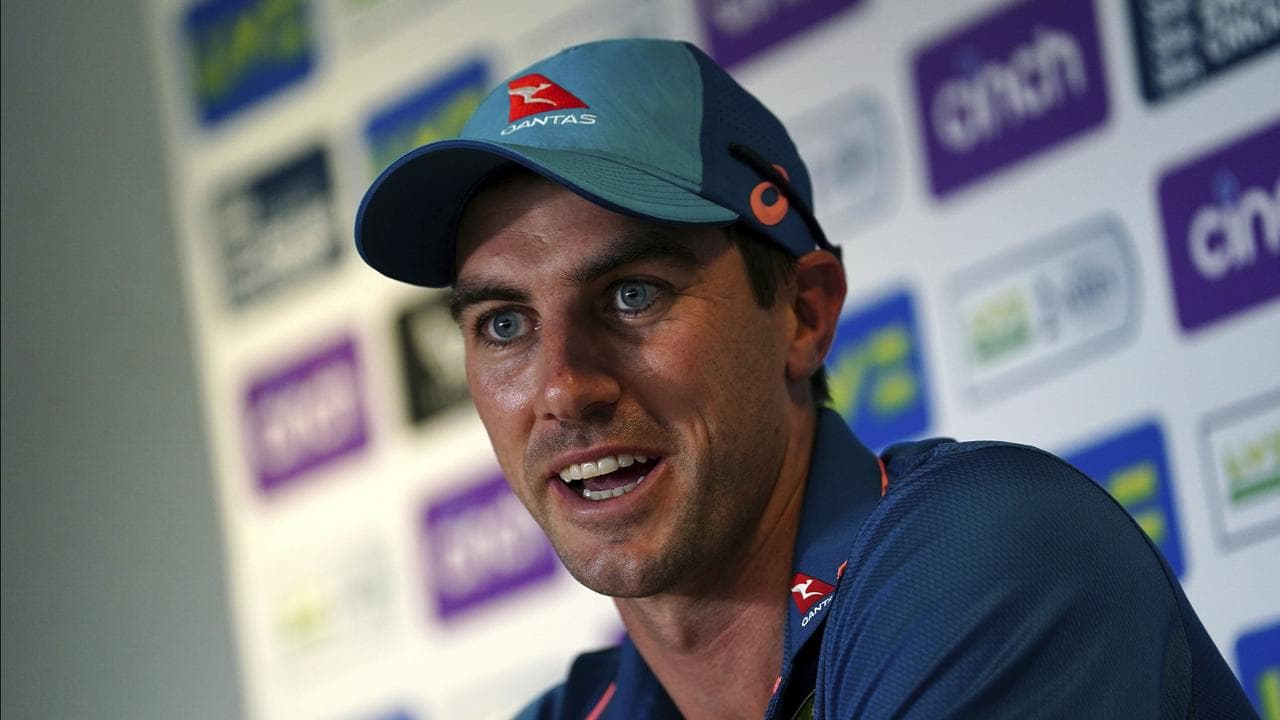
The ICC spent last week trying to convince the cricket globe that the World Test Championship final was the ultimate Test.
It had the tagline spelled out across umpteen advertising boards around The Oval, while commentators not-so-subtly dropped it into the call.
Yet for Australia, as proud as they were to beat India in that final, their ultimate test now truly awaits in the Ashes.
Not only because Australia's pack of established and experienced veterans are trying to break a 22-year drought in England, but also because this is the most unpredictable series in years.
Australia's miserly bowling attack meets England's fearless Bazball batting.
Stuart Broad meets David Warner with a Dukes ball again, with the latter adamant he will bat differently to when he averaged 9.5 on his last tour of England.
Steve Smith meets England's bowlers. England insist they have more plans this time around, but can they really stop a man who averaged 110.54 in 2019?
Pat Cummins, Josh Hazlewood and Scott Boland meet Ben Duckett, with three of the best nagging quicks in the world against a man who has left only six of the 710 balls he has faced in the past year.
Four quick bowlers meet three spots, with the aforementioned trio of pacemen and Mitchell Starc likely to be jostling for a spot in Australia's attack each Test.
Cummins meets Ben Stokes. One captain who preaches positivity when possible and another who is totally and utterly committed to it regardless of the scenario.
Australia are confident they can handle the unknowns across the next five Tests.
They know they want to bowl their normal areas, bat at their normal speed and not get lured into playing England's game.
Australia's drought in England is longer than in any other country. But the conditions are far more familiar to them than in a country like India, particularly if England roll out flat, fast pitches as pushed for by Stokes.
Edgbaston already looks flat for the first Test, albeit not overly fast.
"I'm sure there will be surprises like there always are. But there are probably less unknowns than some other tours," Cummins said.
"India are spinning wickets, that is far more foreign than playing three fast bowlers here in England.
"That takes a lot of problem-solving (in India).
"I am sure we will get presented with a lot of different problems this series that we have to work through.
"But I have played here a little bit. The opposition we have played a lot against."
Cummins is also more confident in himself as a captain than when Australia last began an Ashes series in the wake of Tim Paine's controversial exit.
Australia won that series 4-0 at home.
"I don't think I am overly different to what I was 18 months ago, and the team is basically the same," Cummins said.
"With experience your gut feel gets a little better. Your intuition. And maybe a little bit of confidence knowing I have done it plenty of times before.
"So I am just a little bit stronger with my beliefs when I feel like I need to be."
That confidence could be crucial for both Cummins and Australia, in a series where a fast-moving England will likely leave the captain regularly needing to think on his feet.
Under Cummins, Australia have won 12 Tests and lost three.
They've won in Pakistan, drawn in Sri Lanka, been unbeaten at home and lifted the World Test Championship mace.
But for a year, all the talk has centred around this Ashes series as England treated bowling attacks with contempt and won 11 of 13 Tests under Brendon McCullum.
Players have been asked countless times whether England can maintain the rage and how Australia will handle it.
Come Friday, at least some of those questions will be answered.
And as Cummins has repeated so often in the past month, the legacy of his team and his captaincy will likely be decided in what truly is Australia's ultimate test.




